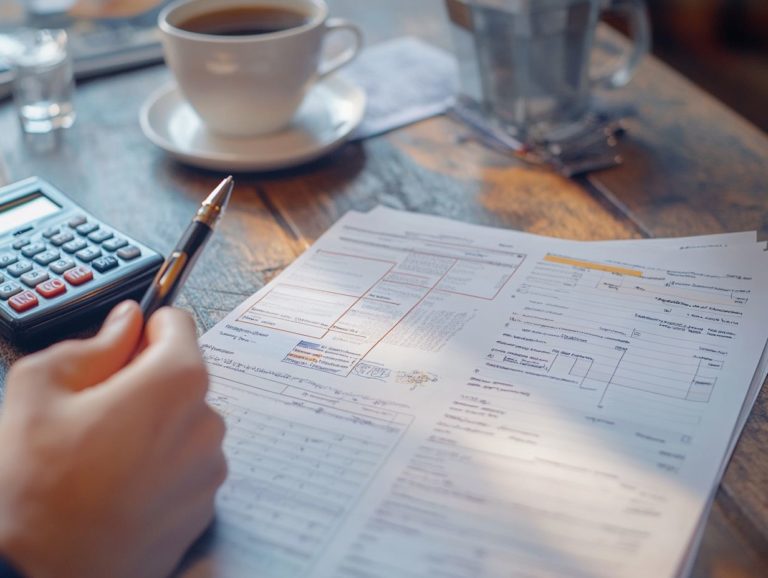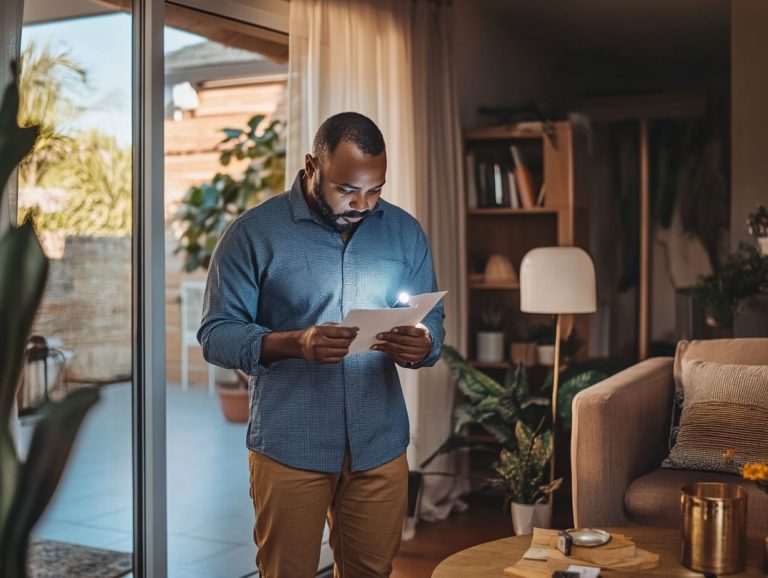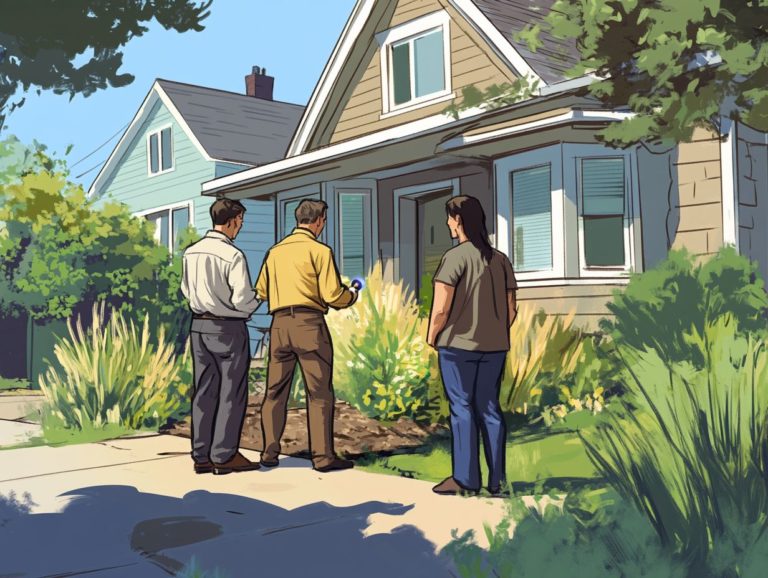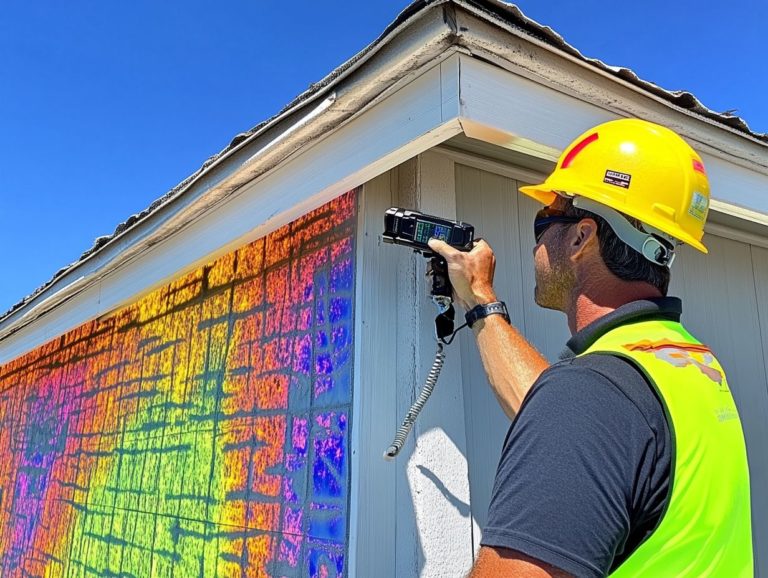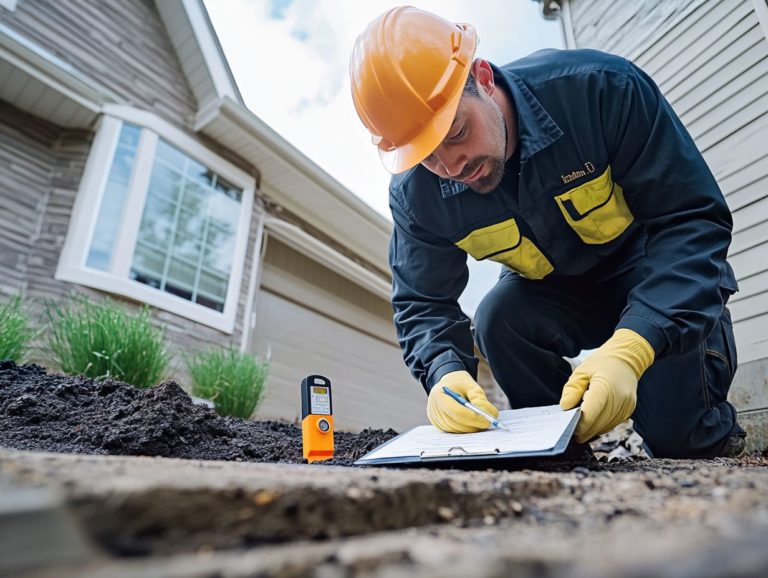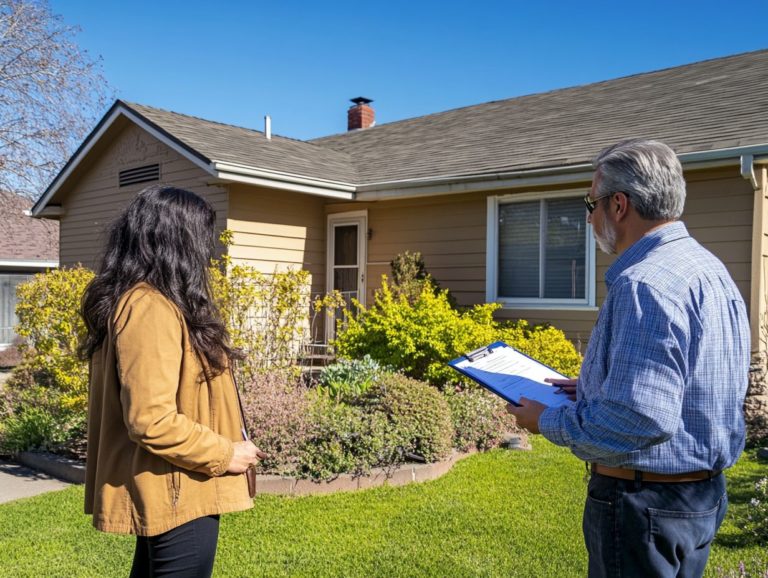How to Communicate with Your Home Inspector
When you re buying or selling a home, grasping the role of a home inspector is essential. This guide is designed to equip you with insights on what to anticipate during an inspection and how to prepare effectively.
You will discover how to engage with your inspector, pose the right questions, and interpret the findings in the inspection report. We ll also delve into how to tackle any concerns that arise and outline the steps to take following the inspection.
Get ready to confidently tackle the home inspection process!
Contents
Key Takeaways:
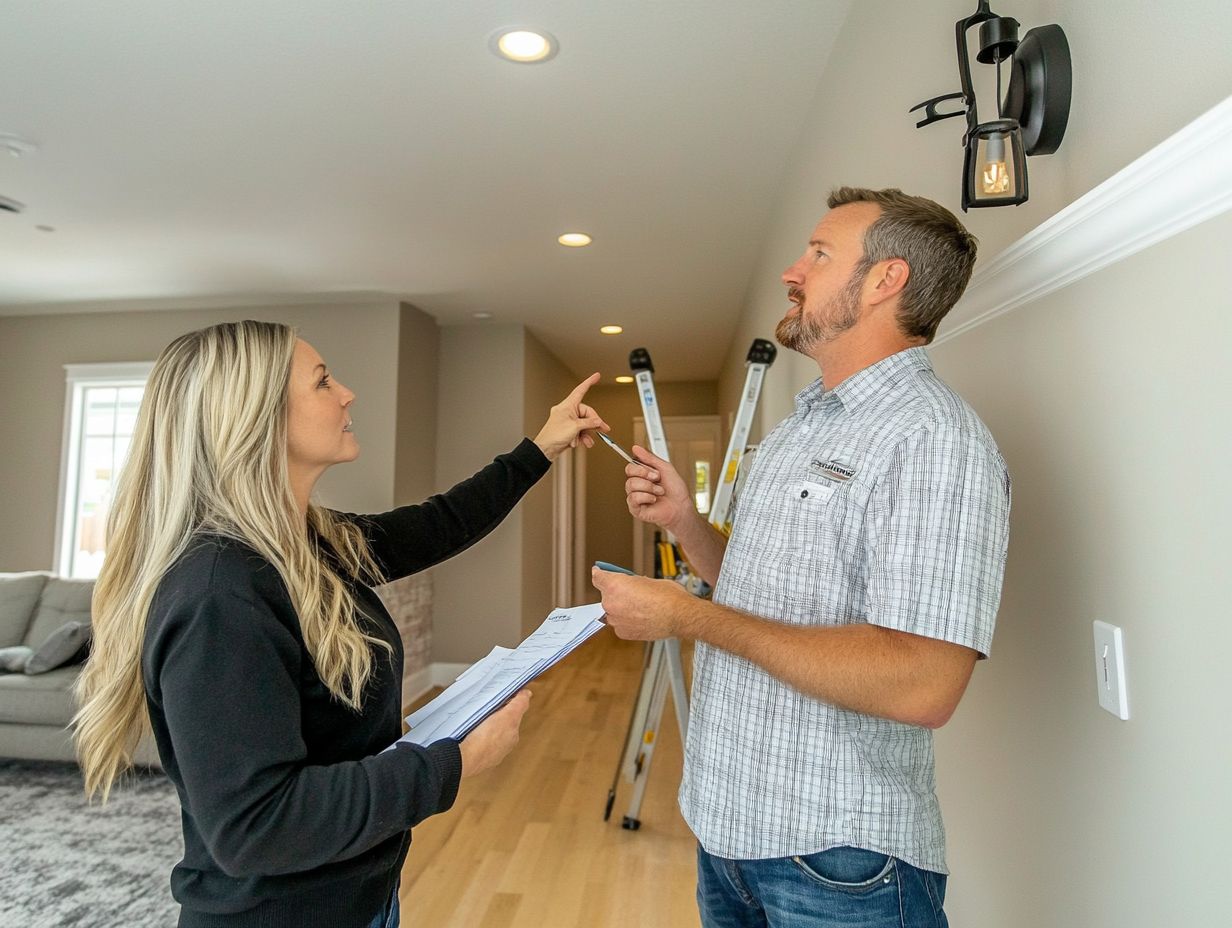
- Understand the role of a home inspector.
- Prepare for the inspection ahead of time.
- Ask questions to communicate effectively with your inspector.
Understanding the Role of a Home Inspector
The role of a home inspector is crucial in the real estate landscape. They offer essential services by carefully checking the condition of a house and delivering comprehensive inspection reports that highlight findings, common issues, and tailored recommendations.
Their expertise enables you to navigate the intricacies of buying or selling a home, fostering client satisfaction through transparent communication and a keen understanding of your needs.
By prioritizing effective communication, home inspectors can articulate inspection details and address any concerns you may have, ultimately guiding you toward making the most of your home inspector’s expertise throughout the process.
What to Expect During an Inspection
Expect a thorough check of your property’s condition during the home inspection, focusing on essential areas like the heating, ventilation, and air conditioning system (HVAC), attic, and overall structural integrity, all captured in a detailed inspection report.
Inspectors will evaluate various components, including plumbing systems, electrical wiring, and the roof’s condition, ensuring everything is safe and functional. Addressing common concerns such as potential pest infestations or outdated electrical systems is crucial for your peace of mind.
Effective communication is paramount. Inspectors strive to present their findings in clear terms, making it easy for you to understand significant issues. They will guide you through the inspection report, explaining the implications of each concern and facilitating knowledge-based decisions. For more guidance, learn how to follow up after a home inspection while underscoring the importance of timely repairs.
This comprehensive approach not only enhances your satisfaction but also protects your investment.
Preparing for the Inspection
Preparing for a home inspection requires a thoughtful approach to ensure everything unfolds seamlessly. Familiarize yourself with the inspection agreements, clarify the logistics involved, and make necessary arrangements for contractor observations during the inspection process.
Each of these steps plays a crucial role in achieving a successful outcome.
Steps to Take Before the Inspector Arrives
Before the home inspector arrives, take a few strategic steps to enhance the inspection experience. Start by ensuring that all areas of your property are accessible and provide the inspector with any pertinent details about your home.
To create an efficient environment, it s vital for you to declutter spaces. This makes it easier for the inspector to access key areas like attics, basements, and crawl spaces.
Gathering relevant documents such as previous repair records and warranties can offer valuable insights into the property’s history. Engaging in open communication during this phase is essential. Sharing specific concerns or details about past repairs can significantly help the inspector provide a thorough evaluation.
By actively participating in this preparation process, you can ensure a smoother inspection experience and foster a sense of trust with the inspector.
Effective Communication with Your Home Inspector
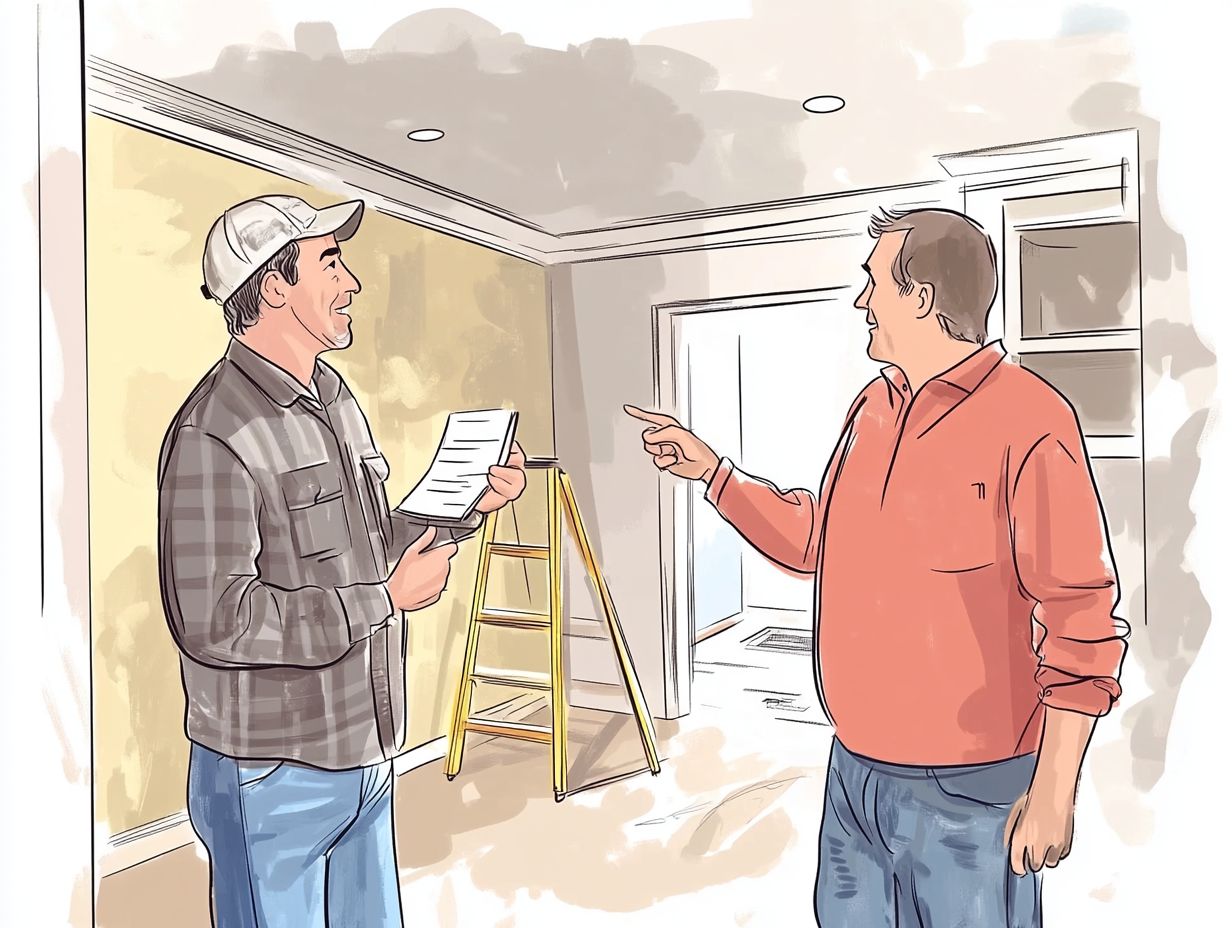
Effective communication with your home inspector is crucial for addressing all your concerns and answering your questions. Knowing how to communicate with your home inspector can ensure the inspection process unfolds seamlessly.
This open dialogue enhances your understanding of the inspection findings and sets clear expectations, making the entire experience more insightful and manageable.
Asking Questions and Providing Information
During the home inspection, actively engage by asking questions and providing the inspector with relevant information about your property. To help you get ready for this process, consider reviewing tips on how to prepare for a home inspection. This ensures you gain a comprehensive understanding of the inspection report.
Taking this proactive approach fosters better communication and helps clarify any concerns that may arise. Prepare a list of questions in advance to facilitate a structured dialogue that addresses specific areas of interest.
By sharing insights about previous issues or repairs, you enable the inspector to focus on critical aspects, leading to a more accurate assessment. For more detailed advice, consider how to make the most of your home inspection. Prioritizing open communication enhances your overall satisfaction with the inspection, leaving you feeling informed and confident in your home-buying decision.
Interpreting the Inspection Report
Interpreting the inspection report requires a thorough examination of the findings, types of issues, and recommendations. This process helps you understand the condition of your property, enabling you to make informed decisions about needed repairs or negotiations.
Understanding the Findings and Recommendations
Understanding the findings and recommendations in your inspection report is crucial. It directly influences your decisions regarding repairs and future actions. Navigating these insights allows you to prioritize necessary repairs and anticipate potential issues that could arise later.
Effective interpretation of recommendations helps you avoid costly misunderstandings. Communication challenges may arise; inspectors often use technical jargon that might not be easily understood, leading to confusion.
Proactively engaging with the inspector to clarify any ambiguous points ensures you have a clear grasp of what needs attention. This collaboration enhances your understanding of the report and strengthens your relationship with the inspector, fostering trust and transparency.
Addressing Issues with the Inspector
Addressing issues with the inspector requires effective communication skills. This enables you to clearly articulate your concerns and cultivate a constructive dialogue that helps you find solutions that work for you!
Handling Disagreements
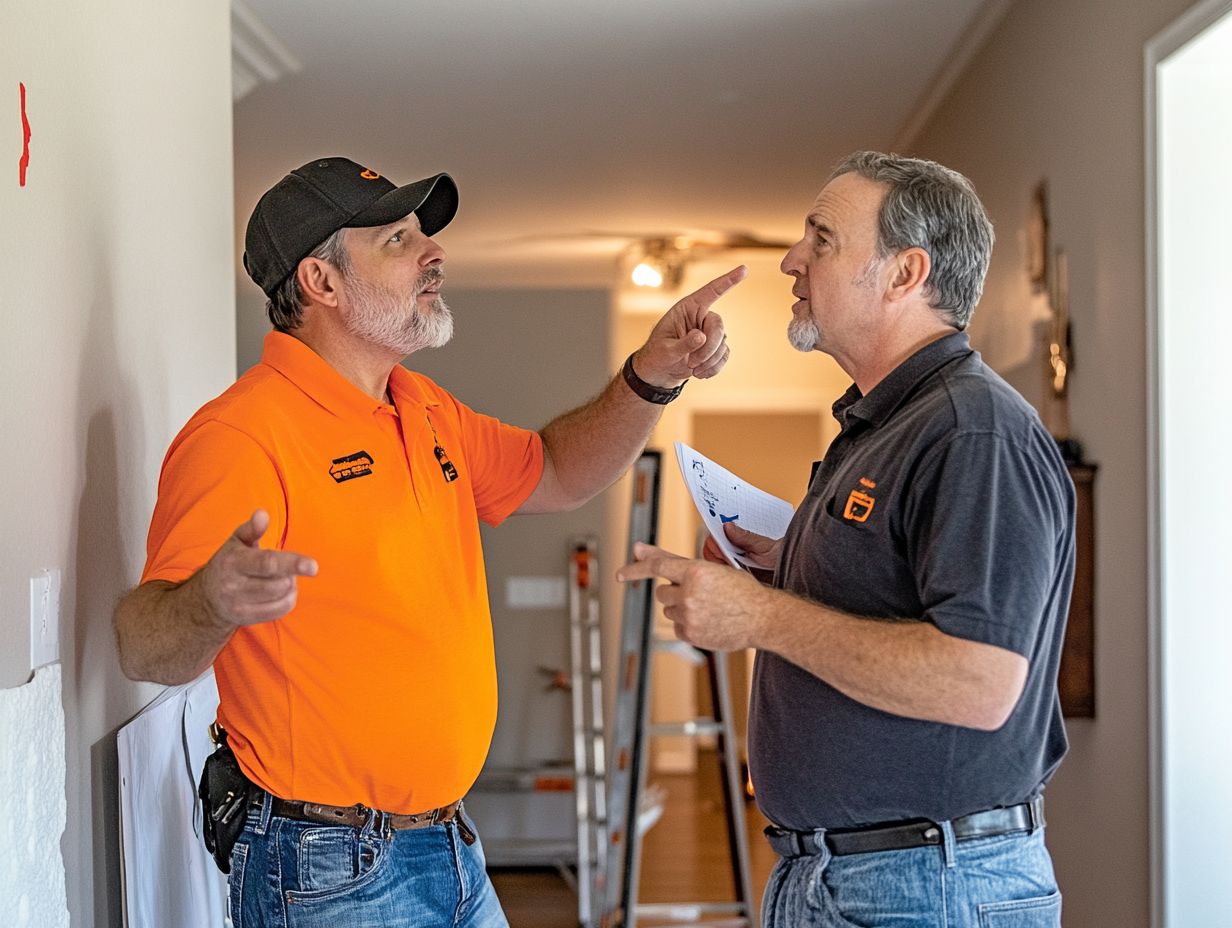
Handling disagreements with a home inspector can be challenging, but employing effective communication techniques allows you to tackle misunderstandings and negotiate resolutions easily. To ensure a smooth process, consider reviewing key questions to ask your home inspector.
If you notice a specific issue was overlooked during the inspection, bring your concerns directly to the inspector s attention. This can clarify the report s details.
Engaging in open dialogue about any anomalies sheds light on the inspector’s findings and invites you to ask for explanations of any technical terms or processes involved in the inspection.
By cultivating an atmosphere of mutual respect and understanding, you re more likely to feel heard, paving the way for a productive resolution to any issues that arise. Ultimately, this approach enables you to gain a thorough understanding of your property s condition, ensuring you can make informed decisions as you move forward.
Following Up After the Inspection
Following up after the inspection is essential for addressing any identified issues, clarifying findings, and ensuring effective communication throughout the entire process. Don’t wait contact your inspector today with any concerns!
Next Steps for Addressing Any Problems
To tackle any issues highlighted in the inspection report, create a plan. This includes engaging with the inspector, reviewing the findings carefully, and considering the contractor’s observations for necessary repairs.
Once you’ve examined the report thoroughly, categorize the issues by severity and urgency. Focus first on those that pose safety risks or have the potential for further damage.
With your priorities established, it s crucial to reach out to contractors for estimates. They can offer valuable insights and timelines for each repair. Effective communication is essential use clear language to convey the findings, ensuring everyone involved fully understands the issues at hand.
Foster an open dialogue with the contractors, allowing space for questions and clarifications. Acting quickly on these concerns eases your worries and helps maintain the property’s integrity.
Frequently Asked Questions
What should I expect from my home inspector?
When communicating with your home inspector, you can expect clear and professional communication. To ensure effective dialogue, it’s helpful to know how to communicate with your inspector. Your inspector should be able to answer any questions you may have and provide thorough explanations of their findings.
How can I prepare for communicating with my home inspector?
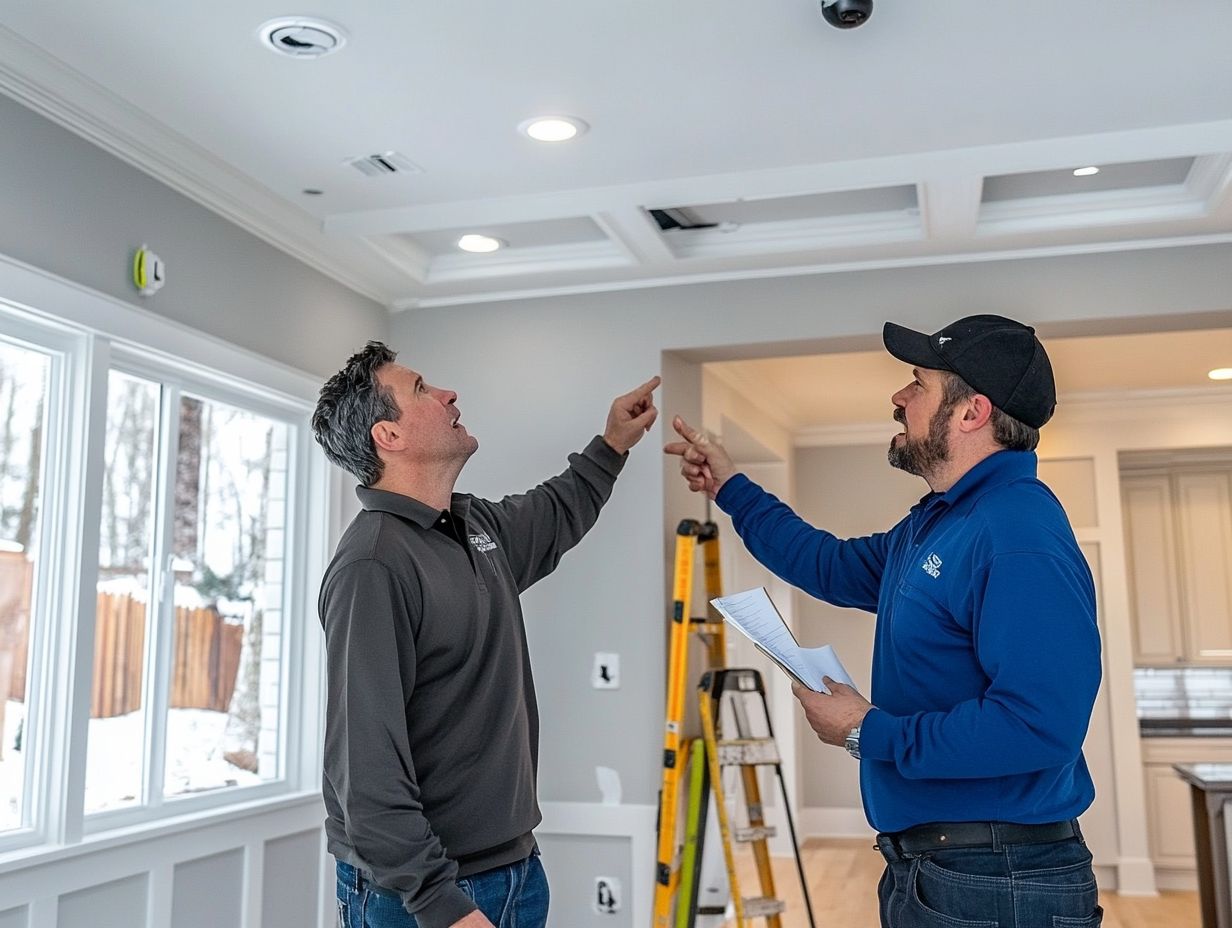
To prepare for communicating with your home inspector, gather any necessary documents or information beforehand. This may include a list of concerns or questions you have about the property, along with important paperwork such as repair or renovation records. Additionally, you can refer to this guide on how to get the most out of your home inspection for helpful tips.
What is the best way to communicate with my home inspector?
The best way to communicate with your home inspector is through a combination of in-person communication and written documentation. In-person conversations provide more in-depth explanations and allow for immediate clarification, while written documentation serves as a record of the inspection process. For further insights, consider how to follow up with your home inspector.
What should I do if I don’t understand something my home inspector is saying?
If you don’t understand something your home inspector is saying, don’t hesitate to ask for clarification. Your inspector is there to help you understand the condition of the property and should be able to explain their findings in an easy-to-understand manner. For more tips, check out this guide on how to prepare for your home inspection.
Is it okay to ask my home inspector questions during the inspection?
Yes, it is absolutely okay to ask your home inspector questions during the inspection. In fact, it is encouraged! Your inspector will provide more detailed explanations and address any concerns you may have while they are on-site.
What should I do if I have questions after the inspection?
If you have questions after the inspection, don t hesitate to reach out to your home inspector. They should be available to answer any follow-up questions or provide further clarification on their findings. It’s important to fully understand the inspection report before making decisions regarding the property.

